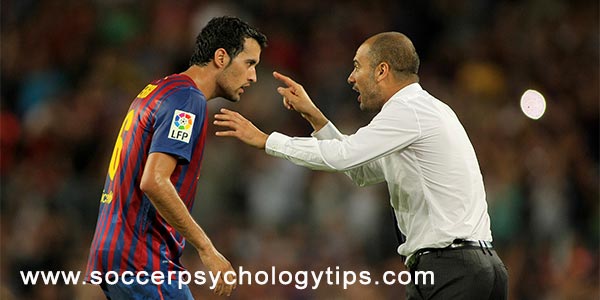
Motivating Your Athlete
“UGH… Practice!” Every young soccer player has uttered these words at some point during a long season when motivation dwindles.
Long hours of practice, monotonous training, slumps and adversity can chip away at a soccer player’s motivation.
Motivation is not just an issue for soccer players but their parents and coaches as well.
Lack of motivation can be particularly frustrating for coaches as they watch their athletes waste the opportunity to improve as a soccer player and reach their potential as an athlete.
In our soccer surveys, coaches and parents express concern about their athletes lack of motivation in training, practices, and even games.
For example, one parent asked for help with the following scenario;
“My daughter plays on a very good team, with an awesome coach. She is lacking the motivation and focus to get better. She will listen but is not motivated to practice outside of the scheduled times or look at her game and set goals for what she needs to work on.”
“My concern with these efforts is that it would be more about my desires than her desires and needs. She does not see the need. She does want to play but will be left behind unless she will make the effort to play at the level that she has shown in the past.”
It’s frustrating to watch athletes not give full effort to build upon her skills and improve their game. They may have the talent, but do not work hard enough. These athletes now get passed by teammates who have improved at a higher rate.
You know that more dedicated practice will lead to reaching one’s potential but athletes often do not see the need. Even in practice these athletes’ lackadaisical attitude can become a distraction for the team.
To help your athletes, you must be able to strike a delicate balance between encouraging them and pushing too hard. Pushing athletes too hard will cause some to push back even more.
How To Motivate Without Being Too Pushy
Listen – Listen to what your athletes needs instead of telling your athletes they should “do this” or “do that,” ask your athletes how you can help. You could suggest, “If you want any additional coaching or training to improve your skills, I can help you with that.”
This shows your support without adding pressure.
If you are a parent. Be a parent and not a sideline coach. After a game, steer clear of giving too much feedback. Ask effective questions, such as “How was practice?,” “Did you do anything fun in practice?” or “How did you think you did today in the game?”
Celebrate Effort – It’s easy to fall into the trap where you only reward success but it is more effective to recognize effort. Praising effort increases effort.
Being supportive, showing interest and giving a nudge are the best methods to enhance your athletes’ motivation and foster hard work without adding undue pressure.
Related Sports Psychology Articles
- How to Stay Motivated When Not a Starter
- How to Motivate Soccer Players Without Being Pushy
- How To Motivate Young Players
- Subscribe to The Sports Psychology Podcast on iTunes
- Subscribe to The Sports Psychology Podcast on Spotify
Download a free sports psychology report to improve your mental game!
Learn more about our one-on-one mental game coaching.
Get the Mental Edge – With Mental Training

Do you perform well in practice, but find yourself under-performing in games? Do you doubt your skills and second-guess yourself under pressure? If so, mental training will help you reach your goals in soccer. Many soccer players have the skill but are held back by low confidence and lack of pregame mental preparation!
You can get expert mental coaching with us from anywhere. Meet with us via Zoom, Skype, FaceTime or phone call. With today’s video technology, we are able to connect with athletes and coaches all over the globe.
Call Us Today to Schedule Your Free 15-Minute Session.
Find Out How You Can Benefit From One-on-One Mental Coaching!
888-742-7225 | 407-909-1700
